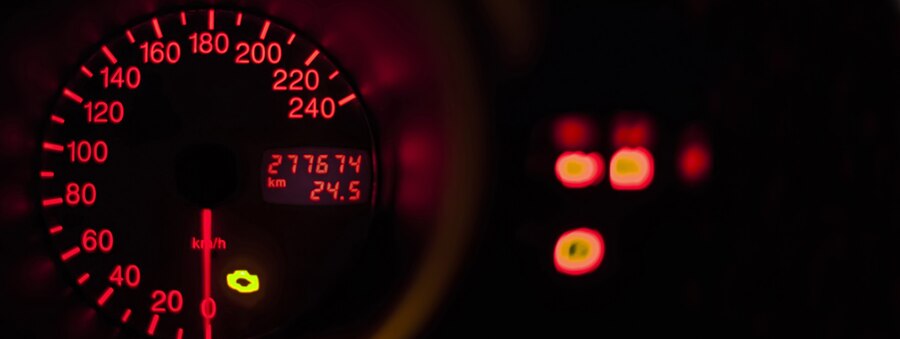The engine knock sensor is a critical component of a vehicle’s engine management system. Its purpose is to detect abnormal combustion and engine knocking, which can cause damage to the engine if left unaddressed. When the knock sensor detects an issue, it sends a signal to the engine control unit (ECU), which then triggers the engine knock sensor warning light on the dashboard. In this article, we will discuss the importance of engine knock sensor warning lights and provide a troubleshooting guide to help you address potential issues.
Importance of Engine Knock Sensor Warning Lights:
- Preventing Engine Damage: Engine knocking, also known as detonation, occurs when the air-fuel mixture in the combustion chamber ignites prematurely or unevenly. This can cause excessive pressure and temperature, leading to engine damage. The knock sensor detects these abnormal combustion events and signals the ECU to make adjustments, such as retarding the ignition timing, to prevent further knocking. The warning light alerts the driver to the presence of engine knock, allowing for prompt action to avoid potential damage.
- Optimizing Engine Performance: Engine knocking not only poses a risk to the engine’s health but also affects performance and fuel efficiency. When the knock sensor detects knocking, the ECU adjusts various engine parameters to ensure optimal combustion. By addressing knock-related issues, the engine can run more efficiently and deliver better performance.
Troubleshooting Guide:
- Check for Loose or Damaged Wiring: Start by inspecting the wiring and connectors related to the knock sensor. Look for any loose connections, frayed wires, or signs of damage. A faulty connection can cause the warning light to illuminate. Ensure that all connections are secure and in good condition. If you identify any issues, repair or replace the wiring or connectors as necessary.
- Clean the Knock Sensor: Over time, the knock sensor can accumulate dirt, oil, or other contaminants, affecting its performance. Use an appropriate cleaning agent or sensor-safe cleaner to carefully clean the sensor. Follow the manufacturer’s instructions and ensure that the sensor is completely dry before reinstalling it.
- Scan for Error Codes: If the warning light persists, use a diagnostic scan tool to retrieve any stored error codes related to the knock sensor or engine knock. These codes can provide valuable information about the specific issue or component causing the problem. Refer to the vehicle’s service manual or consult a professional mechanic to interpret the error codes accurately.
- Test the Knock Sensor: If possible, perform a physical or electrical test of the knock sensor to determine its functionality. This typically involves using a multimeter or specialized equipment to measure the sensor’s resistance or voltage output. Refer to the vehicle’s service manual for specific testing procedures and acceptable values.
- Inspect the Engine for Other Issues: Engine knocking can be caused by factors other than a faulty knock sensor. Excessive carbon buildup, improper fuel quality, incorrect ignition timing, or mechanical problems within the engine can also lead to knocking. If the knock sensor appears to be functioning correctly, it may be necessary to investigate these other potential causes.
- Seek Professional Assistance: If the troubleshooting steps mentioned above do not resolve the issue or if you are uncertain about the diagnosis, it is advisable to consult a qualified mechanic or authorized service center. They have the expertise, specialized equipment, and access to manufacturer-specific information to diagnose and repair engine knock-related issues accurately.
Engine knock sensor warning lights play a crucial role in protecting the engine from damage and optimizing performance. If the warning light illuminates, it is important to address the underlying issue promptly. By following the troubleshooting guide provided in this article, you can diagnose and address potential problems related to engine knock sensor warning lights. However, if you are unsure about any aspect of the diagnosis or unable to resolve the issue yourself, it is best to seek professional assistance to ensure accurate diagnosis and repair.











